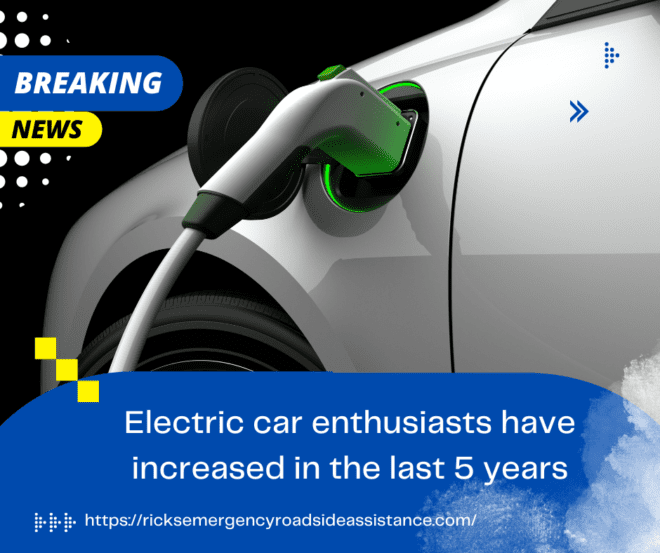Pros and Cons of Electric Cars: A Comprehensive Guide from Rick’s Emergency Roadside Assistance
Part1. Introduction
Part2. Pros of Electric Cars
Part3. Cons of Electric Cars
Part4. Conclusion
Part1. Introduction
As the automotive industry embraces sustainability and eco-consciousness, electric cars have emerged as a promising alternative to traditional gasoline-powered vehicles. With advancements in technology and growing environmental concerns, electric cars have gained immense popularity among consumers. In this article, we will delve into the pros and cons of electric cars to help you make an informed decision when considering a switch to an electric vehicle.

Part 2. Pros of Electric Cars
1. Environmental Benefits
Electric cars are hailed for their eco-friendly nature. By running solely on electricity, they produce zero tailpipe emissions, reducing air pollution and greenhouse gas emissions. Embracing electric vehicles contributes to cleaner air, reduced carbon footprint, and a healthier planet for future generations.
2. Cost Savings on Fuel
One of the most significant advantages of electric cars is the potential for substantial savings on fuel costs. Electricity is generally cheaper than gasoline, which can lead to significant savings over time, especially for drivers with long commutes.
3. Low Maintenance Requirements
Electric cars have fewer moving parts and do not require oil changes or exhaust system maintenance. This results in lower maintenance costs over the vehicle’s lifetime, making them an economically sound choice.
4. Incentives and Tax Credits
Many governments and regions offer incentives and tax credits to promote the adoption of electric vehicles. These incentives can include tax rebates, reduced registration fees, and access to carpool lanes, making electric cars an attractive option for cost-conscious consumers.
5. Quiet and Smooth Performance
Electric cars offer a quieter and smoother driving experience compared to their gasoline counterparts. The absence of an internal combustion engine eliminates engine noise, providing a serene and enjoyable ride.
6. Regenerative Braking
Electric cars often feature regenerative braking technology that captures and stores energy produced during braking. This energy is then used to recharge the battery, increasing overall efficiency and range.
Part 3. Cons of Electric Cars
1. Limited Driving Range
One of the primary concerns associated with electric cars is their limited driving range on a single charge. Although technological advancements have extended the range in recent years, some electric cars may not be suitable for long-distance travel without frequent charging stops.
2. Charging Infrastructure
The availability of charging stations remains a potential drawback for electric car owners. While the charging infrastructure is continuously expanding, it may still be less prevalent in certain regions, leading to charging challenges for some drivers.
3. Longer Charging Times
Charging an electric car takes significantly longer than refueling a traditional gasoline car. Standard charging can take several hours, while fast-charging stations may still require substantial time compared to filling up a gas tank.
4. Upfront Cost
Electric cars often have a higher upfront cost than their gasoline counterparts. Although incentives and tax credits can offset this expense to some extent, the initial investment can be a barrier for budget-conscious buyers.
5. Weight and Performance
Electric vehicle batteries are heavy, which can affect the overall performance and handling of the car. Some electric cars may have slightly diminished acceleration and handling capabilities compared to gasoline-powered vehicles.
6. Limited Model Variety
While the market for electric cars is growing rapidly, the variety of models and styles available may still be more limited compared to traditional gasoline-powered vehicles.
Part4. Conclusion
Electric cars offer numerous advantages, including environmental benefits, cost savings on fuel, and lower maintenance requirements. They represent a step toward a greener and more sustainable future for the automotive industry. However, potential drawbacks such as limited driving range, charging infrastructure, and upfront costs should be carefully considered. By having knowledge of the pros and cons of electric cars you can take an informed decision for your better future.
At Rick’s Emergency Roadside Assistance, we recognize the importance of staying informed about the evolving automotive landscape. As electric cars become more prevalent on the roads, it’s essential to be aware of their pros and cons to make the right choices for your transportation needs. Whether you drive an electric car or a traditional vehicle, you can count on Rick’s Emergency Roadside Assistance to provide reliable and prompt service whenever you need it.
Remember, every car, regardless of its power source, may experience unexpected breakdowns. So, stay prepared and put safety first on your journeys, regardless of the vehicle you choose. Drive responsibly, and together, we can make a positive impact on the environment while enjoying the convenience of modern transportation.